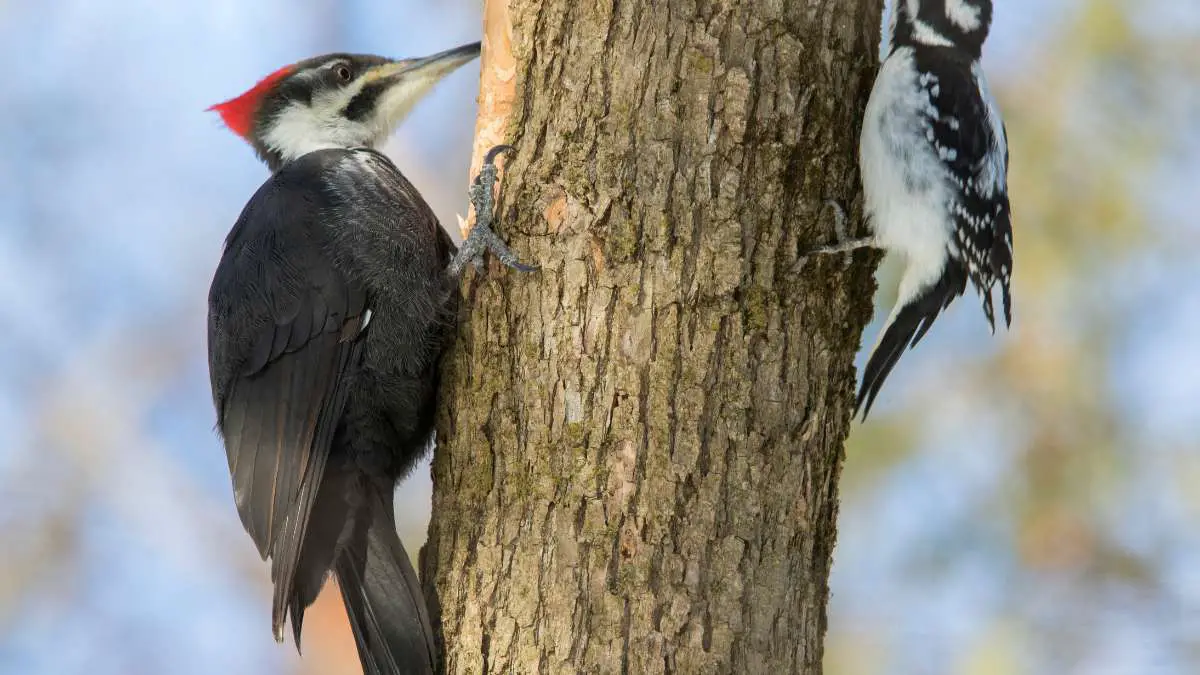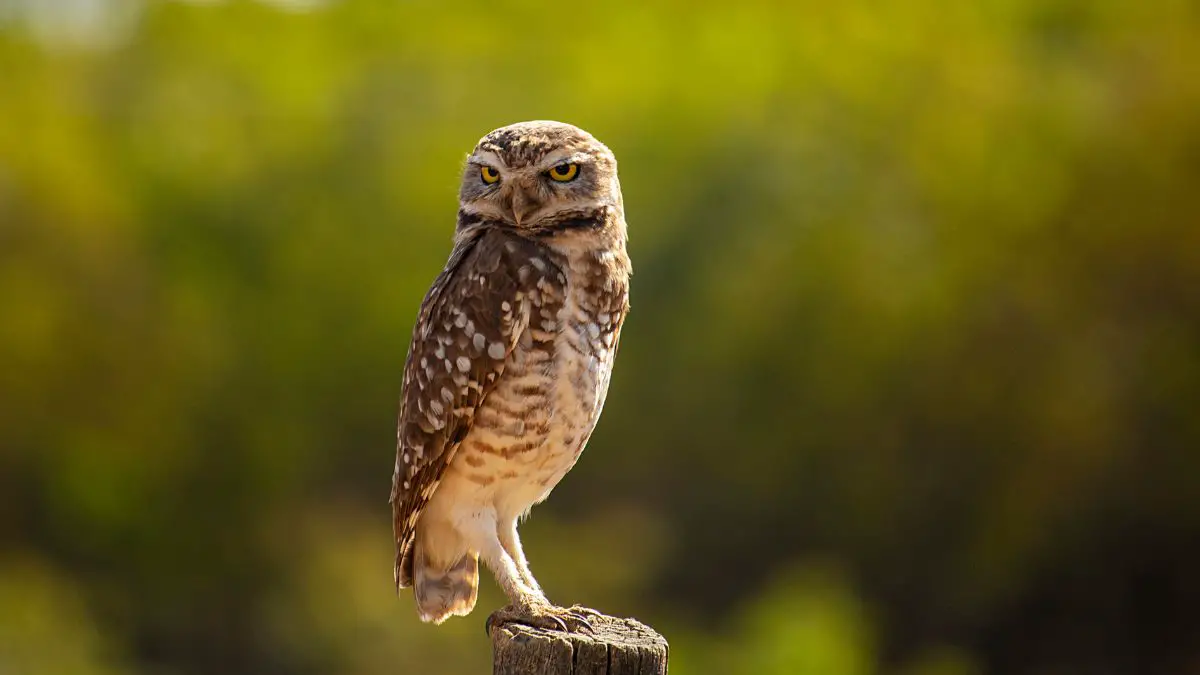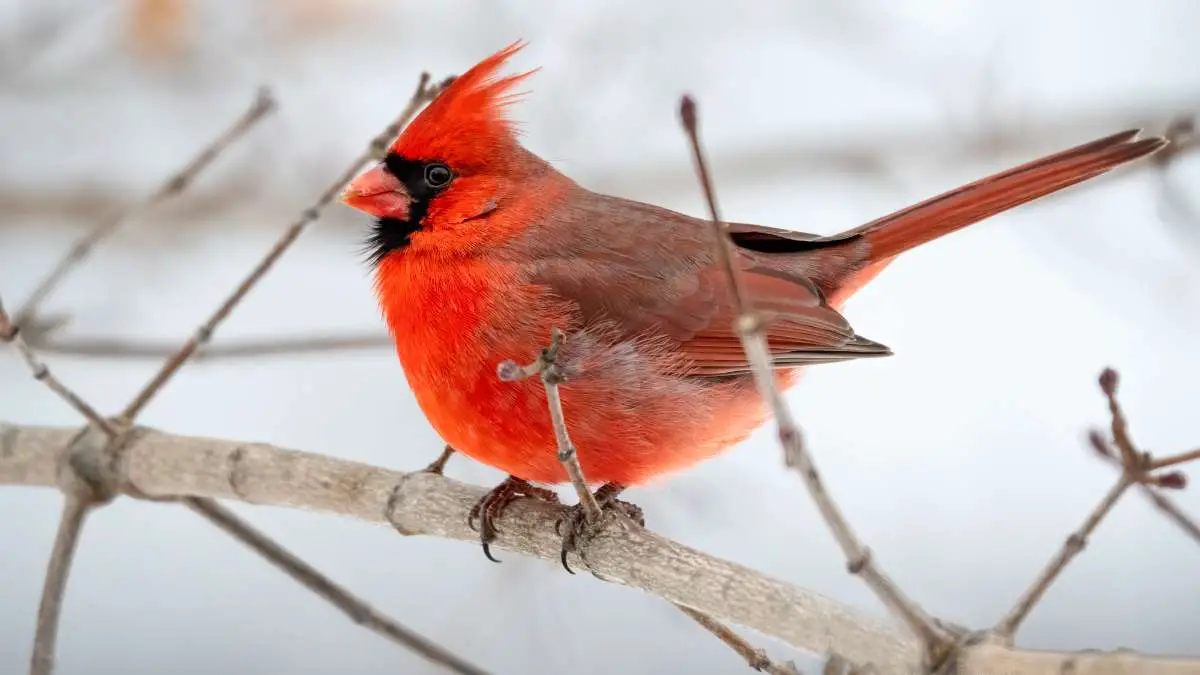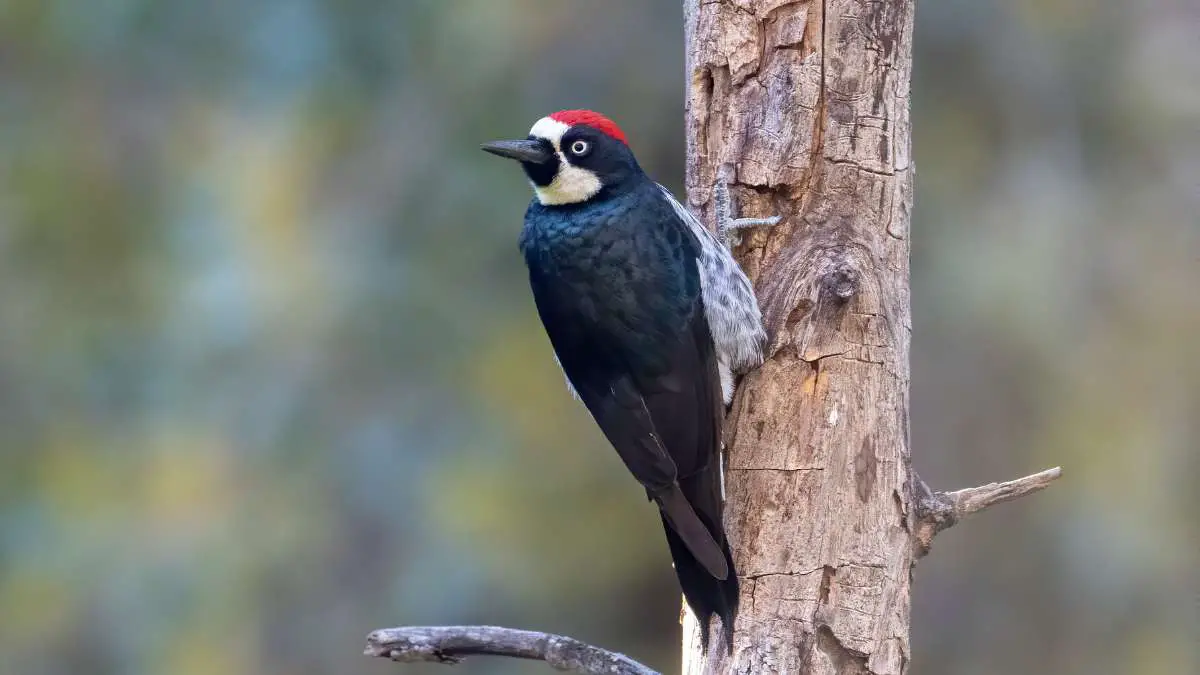Woodpeckers are known for their distinctive pecking on trees during the day, but do they peck at night? Typically, woodpeckers are diurnal birds, meaning they are active during the day and rest at night.
They peck for various reasons, such as finding food, creating nests, or marking their territory. At night, woodpeckers, like most birds, roost to conserve energy and stay safe from predators.
However, if disturbed by noise or light or if the bird leads to a stress situation, a woodpecker might peck briefly at night. While rare, this behavior is usually due to unusual circumstances rather than normal habits.
In summary, woodpeckers generally do not peck at night as they follow a daily cycle of activity and rest, preferring the safety and quiet of nighttime roosting.
Understanding Woodpecker Behavior
General Habits of Woodpeckers
Woodpeckers are fascinating birds known for their unique behaviors. These birds are diurnal, meaning they are active during the day. They start their day early, just after sunrise, and are busy throughout the daylight hours.
Woodpeckers feed mainly on insects, which they find by pecking into wood. They also eat fruit, nuts, and tree sap.
Their strong beaks and long tongues help them extract insects from deep inside tree bark. This pecking is not random; it’s a crucial part of their feeding routine.
Nesting is another important aspect of woodpecker behavior. They create their nests by carving out cavities in tree trunks or branches.
These nests provide shelter and protection for their eggs and young chicks. Woodpeckers are known to be attentive parents, caring for their young until they are ready to leave the nest.
The Purpose of Pecking
Pecking serves several purposes for woodpeckers. One key reason is communication. Woodpeckers use pecking to send messages to other individual woodpeckers in the area.
The sound of their pecking can convey warnings (territoriality) or attract mates.
Foraging for food is another primary reason for their pecking. By drilling into wood, they can reach insects hidden beneath the surface.
This method of feeding is efficient and provides them with a steady diet of protein-rich insects.
Lastly, woodpeckers peck to mark their territory. This behavior, known as drumming, involves rapid pecking that creates a loud noise. Drumming signals to other woodpeckers that a territory is claimed and helps keep rivals away.
Woodpeckers and Nocturnal Activity
Are Woodpeckers Nocturnal?
Nocturnal animals are those that are active at night. Many birds, like owls and nightjars, fall into this category. However, woodpeckers are not nocturnal. They belong to a group of birds that are diurnal, meaning they are active during the day.
Unlike nocturnal birds, woodpeckers start their day at dawn.
They spend their daylight hours pecking at trees, searching for food, and communicating with other woodpeckers.
When the sun sets, woodpeckers retreat to their nests, where they rest for the night.
Scientific Studies and Observations
Research on woodpecker behavior supports the fact that these birds are diurnal. Studies show that woodpeckers are most active during the morning and afternoon.
They use their sharp beaks to drill into trees, seeking insects and creating nesting cavities.
Bird watchers and ornithologists have also provided anecdotal evidence that woodpeckers do not peck at night.
Observations reveal that woodpeckers are rarely seen or heard once the sun goes down. Their nighttime behavior contrasts with nocturnal birds, which become active after dark.
Certain factors might influence woodpeckers’ activity, but none suggest they become nocturnal. For instance, woodpeckers may become more active during the breeding season, but this still occurs during daylight hours.
Similarly, their pecking behavior may increase in response to finding food or defending territory, yet these activities remain confined to daytime.
Environmental Factors
Light and Dark Cycles
Bird behavior is heavily influenced by natural light cycles. Most birds, including woodpeckers, are diurnal, meaning they are active during the day and rest at night.
Natural light triggers their activities such as feeding, mating, and pecking. Woodpeckers rely on daylight to find food, communicate, and build nests.
Changes in light can impact woodpecker behavior. For instance, during shorter winter days, woodpeckers might adjust their routines, but they still remain active only during daylight hours.
They are not adapted to see well in the dark, making nighttime activity impractical for them.
Urban vs. Rural Woodpeckers
Urban environments can influence woodpecker behavior differently compared to rural settings.
In cities, artificial lights and noise can disrupt natural patterns. However, woodpeckers generally stick to their diurnal habits even in urban areas.
They might be seen foraging on telephone poles or building nests in wooden structures during the day, but they retreat to quiet, dark places at night.
In rural areas, woodpeckers follow more natural light cycles without much human interference. They wake up with the sunrise and wind down as the sun sets.
There is no significant evidence to suggest that woodpeckers in urban areas exhibit increased nocturnal activity compared to their rural counterparts.
Reasons for Nighttime Pecking
Unusual Circumstances
Woodpeckers are typically active during the day, but unusual circumstances can sometimes cause them to peck at night.
One primary reason is disturbances or stress in their environment. Loud noises, bright lights, or other disruptions can startle woodpeckers, prompting them to peck as a defensive response or to reestablish their territory.
Predation and safety concerns can also lead to nighttime pecking.
If a woodpecker feels threatened by a predator, it might become active to protect itself or its nest.
This behavior is rare but can occur if the bird is particularly stressed or if its nest is disturbed.
Seasonal Variations
Seasonal changes can impact woodpecker behavior, although they rarely cause nighttime pecking.
During the breeding season, woodpeckers become more active as they search for mates and prepare nesting sites.
This increased activity generally occurs during daylight hours, but occasionally, you might hear some pecking extending into the early evening.
In colder months, woodpeckers may adjust their daily routines due to shorter days, but they remain diurnal.
They might start their activities earlier in the morning and end them later in the afternoon to maximize daylight hours, but this doesn’t typically extend into nighttime.
Case Studies and Examples
Documented Instances
There have been rare documented instances of woodpeckers pecking at night.
In one case, a homeowner reported hearing a woodpecker drumming on a metal chimney cap at midnight.
Upon investigation, it was found that a sudden increase in artificial lighting in the area had disrupted the bird’s natural rhythm, causing it to become active at an unusual hour.
Another instance involved a woodpecker pecking on a wooden fence in a suburban area late at night. This behavior was triggered by nearby construction noise, which had disturbed the bird’s usual habitat and routine.
Analysis of these cases indicates that nighttime pecking by woodpeckers is almost always due to external disturbances.
Factors such as bright lights, loud noises, or environmental changes can temporarily alter their behavior, making them active at night.
Conclusion
In summary, woodpeckers are diurnal birds, meaning they are active during the day and rest at night.
While rare instances of nighttime pecking have been documented, these are typically due to environmental disturbances like bright lights or loud noises.
Ornithologists confirm that woodpeckers’ natural behavior is driven by daylight cycles.
Therefore, it is uncommon for woodpeckers to peck at night. Understanding and minimizing disruptions can help maintain their normal daytime routines.




